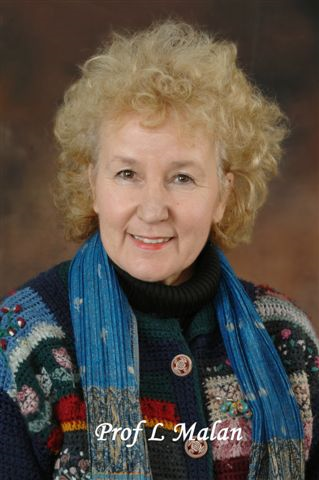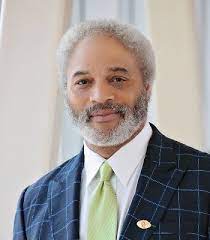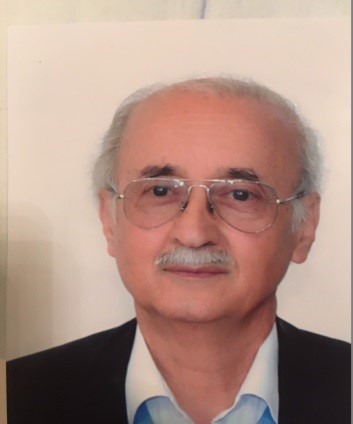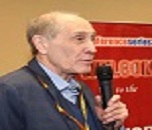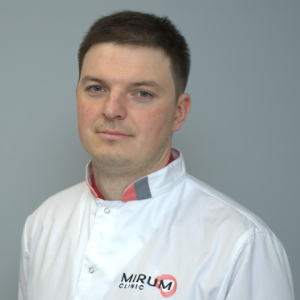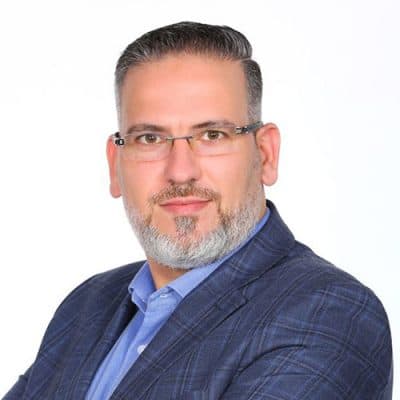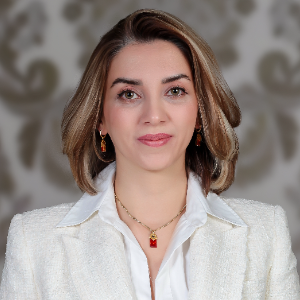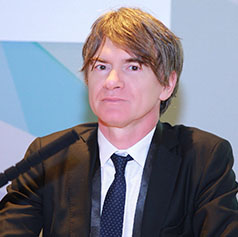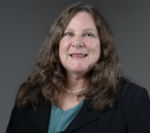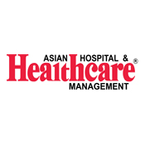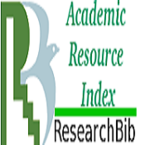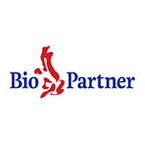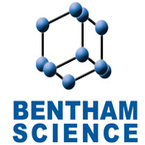Theme: Pulsating Progress: Advancements Shaping the Future of Cardiology
World Heart Congress 2024
Track 1: Clinical Cardiology
Clinical Cardiology includes studies appertain to cardiac diseases viz., congenital heart diseases, coronary artery disease, heart failure, cardiovascular heart disease, and their epidemiology and pathophysiology of the heart. The therapeutic procedures involving diagnosis and management of cardiac diseases like electrophysiology, cardiovascular devices, cardiac regeneration, cardiac medicine, cardiac surgery, and identification of risk factors for cardiovascular diseases.
Heart Conferences | Heart disease Conferences | Heart failure Conferences | Cardiology Conference 2024 | Cardiology Meeting | Cardiology Conferences | Cardiovascular Conferences | Cardiac Surgery Conferences | World Heart Congress | International Cardiology Conferences | Cardiology Conference 2024 USA | Heart Congress 2024
Track 2: Heart Diseases
Heart disease describes a range of conditions that affect the heart. Diseases under the heart disease includes blood vessel diseases, such as coronary artery disease; heart rhythm problems (arrhythmias); and heart defects you're born with (congenital heart defects), among others. Heart disease term is often used interchangeably with the cardiovascular disease. It generally refers to conditions that involve narrowed or blocked blood vessels that can lead to a heart failure, chest pain (angina) or stroke. Other heart conditions, such as those that affect your heart's muscle, valves or rhythm, also are considered forms of heart disease. Many forms of heart disease can be prevented or treated with healthy lifestyle choices.
Heart Conferences | Heart disease Conferences | Heart failure Conferences | Cardiology Conference 2024 | Cardiology Meeting | Cardiology Conferences | Cardiovascular Conferences | Cardiac Surgery Conferences | World Heart Congress | International Cardiology Conferences | Cardiology Conference 2024 USA | Heart Congress 2024
Track 3: Heart Failure
Heart failure, sometimes known as congestive heart failure, occurs when your heart muscle doesn't pump blood as well as it should. Certain conditions, such as narrowed arteries in your heart (coronary artery disease) or high blood pressure, gradually leave your heart too weak or stiff to fill and pump efficiently. Not all conditions that lead to heart failure can be reversed, but treatments can improve the signs and symptoms of heart failure and help you live longer. Lifestyle changes such as exercising, reducing salt in your diet, managing stress and losing weight can improve your quality of life. One way to prevent heart failure is to control conditions that cause heart failure, such as coronary artery disease, high blood pressure, diabetes or obesity.
Heart Conferences | Heart disease Conferences | Heart failure Conferences | Cardiology Conference 2024 | Cardiology Meeting | Cardiology Conferences | Cardiovascular Conferences | Cardiac Surgery Conferences | World Heart Congress | International Cardiology Conferences | Cardiology Conference 2024 USA | Heart Congress 2024
Track 4: Cardiovascular Medicine
Cardiovascular medicine is a branch of healthcare dedicated to diagnosing, treating, and preventing diseases affecting the heart and blood vessels. It encompasses a wide range of conditions, including coronary artery disease, heart failure, arrhythmias, and vascular diseases. Cardiovascular medicine utilizes various diagnostic tools such as echocardiography, cardiac catheterization, and stress testing to assess heart function and structure. Treatment approaches may include lifestyle modifications, medications, interventional procedures, and surgical interventions, aiming to optimize cardiovascular health and reduce the risk of complications.
Heart Conferences | Heart disease Conferences | Heart failure Conferences | Cardiology Conference 2024 | Cardiology Meeting | Cardiology Conferences | Cardiovascular Conferences | Cardiac Surgery Conferences | World Heart Congress | International Cardiology Conferences | Cardiology Conference 2024 USA | Heart Congress 2024
Track 5: Cardiac Surgery
Cardiac surgery encompasses surgical procedures performed on the heart or great vessels to treat various conditions, including coronary artery disease, valvular heart disease, and congenital heart defects. Common procedures include coronary artery bypass grafting (CABG), valve repair or replacement, and congenital heart defect repair. These surgeries aim to improve blood flow, correct structural abnormalities, and restore optimal heart function. Advancements in surgical techniques and technology have led to safer procedures with improved outcomes, enhancing the quality of life for patients undergoing cardiac surgery.
Heart Conferences | Heart disease Conferences | Heart failure Conferences | Cardiology Conference 2024 | Cardiology Meeting | Cardiology Conferences | Cardiovascular Conferences | Cardiac Surgery Conferences | World Heart Congress | International Cardiology Conferences | Cardiology Conference 2024 USA | Heart Congress 2024
Track 6: Hypertension
Hypertension, commonly known as high blood pressure, is a chronic medical condition characterized by elevated blood pressure levels persistently exceeding normal limits. It's a major risk factor for cardiovascular diseases like heart attacks and strokes. Hypertension often presents with no symptoms, making regular blood pressure monitoring crucial for early detection and management. Lifestyle modifications such as dietary changes, exercise, and stress reduction are primary interventions. Additionally, medications like diuretics, ACE inhibitors, and calcium channel blockers may be prescribed to control blood pressure and reduce the risk of associated complications.
Heart Conferences | Heart disease Conferences | Heart failure Conferences | Cardiology Conference 2024 | Cardiology Meeting | Cardiology Conferences | Cardiovascular Conferences | Cardiac Surgery Conferences | World Heart Congress | International Cardiology Conferences | Cardiology Conference 2024 USA | Heart Congress 2024
Track 7: Arrhythmias
An arrhythmia is a problem with the rate or rhythm of your heartbeat. It means that your heart beats too quickly, too slowly, or with an irregular pattern. When the heart beats faster than normal, it is called tachycardia. When the heart beats too slowly, it is called bradycardia. The most common type of arrhythmia is atrial fibrillation, which causes an irregular and fast heartbeat. Many factors can affect your heart's rhythm, such as having had a heart attack, smoking, congenital heart defects, and stress. Some substances or medicines may also cause arrhythmias.
Heart Conferences | Heart disease Conferences | Heart failure Conferences | Cardiology Conference 2024 | Cardiology Meeting | Cardiology Conferences | Cardiovascular Conferences | Cardiac Surgery Conferences | World Heart Congress | International Cardiology Conferences | Cardiology Conference 2024 USA | Heart Congress 2024
Track 8: Cardiac Electrophysiology
The cardiac electrophysiology study(EPS) typically measures the response of the injured or cardiomyopathic myocardium to programmed electrical stimulation on specific pharmacological regimens in order to assess the likelihood that the regimen will successfully prevent potentially fatal sustained ventricular tachycardia or ventricular fibrillation in the future. Such studies may also be conducted in the presence of a newly implanted or newly replaced cardiac pacemaker or automatic implantable cardioverter-defibrillators
Heart Conferences | Heart disease Conferences | Heart failure Conferences | Cardiology Conference 2024 | Cardiology Meeting | Cardiology Conferences | Cardiovascular Conferences | Cardiac Surgery Conferences | World Heart Congress | International Cardiology Conferences | Cardiology Conference 2024 USA | Heart Congress 2024
Track 9: Pediatric Cardiology
Pediatric Cardiology is also called Pediatric Cardiopulmonary disease which involves the childhood disorder includes both the heart and lungs problems. Pediatric cardiologist is a pediatrician who has gotten broad preparing in diagnosis and treatment of kids' cardiovascular issues. Assessment and treatment may start with the embryo since heart issues can now be identified before birth.
Heart Conferences | Heart disease Conferences | Heart failure Conferences | Cardiology Conference 2024 | Cardiology Meeting | Cardiology Conferences | Cardiovascular Conferences | Cardiac Surgery Conferences | World Heart Congress | International Cardiology Conferences | Cardiology Conference 2024 USA | Heart Congress 2024
Track 10: Nuclear Cardiology & Cardiac CT
Nuclear Cardiology has played a pivotal role in establishing the diagnosis of heart disease and in the assessment of disease extent and the prediction of outcomes in the setting of coronary artery disease. Nuclear cardiology studies use noninvasive techniques to assess myocardial blood flow, evaluate the pumping function of the heart as well as visualize the size and location of a heart attack. Among the techniques of nuclear cardiology, myocardial perfusion imaging is the most widely used.
A computed tomography scan is commonly called a CT scan or CAT scan is a test that uses X-rays to view specific areas of your body. These scans use safe amounts of radiation to create detailed images of the body, which can help the doctor to detect any problems. A heart, or cardiac, CT scan is used to view your heart and blood vessels. A heart CT scan may also be called a coronary CT angiogram if it’s meant to view the arteries that bring blood to your heart. The test may be called a coronary calcium scan if it’s meant to determine whether there is a buildup of calcium in your heart.
Heart Conferences | Heart disease Conferences | Heart failure Conferences | Cardiology Conference 2024 | Cardiology Meeting | Cardiology Conferences | Cardiovascular Conferences | Cardiac Surgery Conferences | World Heart Congress | International Cardiology Conferences | Cardiology Conference 2024 USA | Heart Congress 2024
Track 11: Molecular and Cellular Cardiology
Molecular and Cellular Cardiology is a new and fast-growing area of cardiovascular medicine that aims to apply molecular biology techniques for the mechanistic investigation, diagnosis, prevention and treatment of cardiovascular disease. As an emerging discipline, it has changed conceptual thinking of cardiovascular development, disease etiology and pathophysiology and advancing knowledge of the mechanisms responsible for both normal and diseased cardiovascular function.
Heart Conferences | Heart disease Conferences | Heart failure Conferences | Cardiology Conference 2024 | Cardiology Meeting | Cardiology Conferences | Cardiovascular Conferences | Cardiac Surgery Conferences | World Heart Congress | International Cardiology Conferences | Cardiology Conference 2024 USA | Heart Congress 2024
Track 12: Cardiac Nursing and Healthcare
Cardiac nursing is a nursing specialty which deals with the patients who suffer from various conditions of the cardiovascular system. Cardiovascular nurses handle the people with heart diseases and interact with their patients’ families. They may monitor and treat acutely ill patients, or they may focus on cardiac rehabilitation helping patients make lifestyle changes to prevent the worsening of their disease.
Heart Conferences | Heart disease Conferences | Heart failure Conferences | Cardiology Conference 2024 | Cardiology Meeting | Cardiology Conferences | Cardiovascular Conferences | Cardiac Surgery Conferences | World Heart Congress | International Cardiology Conferences | Cardiology Conference 2024 USA | Heart Congress 2024
Track 13: Cardiac Regeneration
Cardiac Regeneration is a broad effort and comes into existence when the cardiac tissue is damaged and failed to regenerate the myocardium. Where the main principle behind cardiac regeneration is Reparative stem cells have the capability to restore function to damaged tissue by renewing cell growth in cardiac cells destroyed by heart disease. Reparative tools have been engineered to restore damaged heart tissue and function using the body's natural ability to regenerate. Current therapies includes such as adult stem and precursor cells, nuclear dynamics of the heart growth, Reprogramming Fibroblasts to Cardiomyocytes, Stem cells and cell therapy.
Heart Conferences | Heart disease Conferences | Heart failure Conferences | Cardiology Conference 2024 | Cardiology Meeting | Cardiology Conferences | Cardiovascular Conferences | Cardiac Surgery Conferences | World Heart Congress | International Cardiology Conferences | Cardiology Conference 2024 USA | Heart Congress 2024
Track 14: Cardiovascular Engineering
Cardiovascular Engineering is a wide spectrum of research, from basic to transitive in all attributes of cardiovascular physiology and medical treatment. The distribution of research that utilizes engineering principles and methods to enhance basic knowledge and technological solutions related to cardiovascular system. Coverage ranges from subcellular to systems level topics, including other implantable medical devices such as hemodynamics, tissue biomechanics, functional imaging, surgical devices, electrical physiology, tissue engineering and regenerative methods, diagnostic tools, transmission and delivery of biologics and biosensors.
Heart Conferences | Heart disease Conferences | Heart failure Conferences | Cardiology Conference 2024 | Cardiology Meeting | Cardiology Conferences | Cardiovascular Conferences | Cardiac Surgery Conferences | World Heart Congress | International Cardiology Conferences | Cardiology Conference 2024 USA | Heart Congress 2024
Track 15: Cardiovascular Toxicology and Pharmacology
Cardiovascular pharmacology is the main study of the effects of drugs on the entire cardiovascular system, which includes the heart and blood vessels. Cardiovascular Toxicology deals with the adverse effects on the heart or blood systems which result from exposure to toxic chemicals. It describes safety data of detrimental effects of new cardiovascular drugs.
Heart Conferences | Heart disease Conferences | Heart failure Conferences | Cardiology Conference 2024 | Cardiology Meeting | Cardiology Conferences | Cardiovascular Conferences | Cardiac Surgery Conferences | World Heart Congress | International Cardiology Conferences | Cardiology Conferences 2024 USA | Heart Congress 2024
Track 16: Percutaneous Coronary Interventions
Percutaneous coronary intervention (PCI) is a non-surgical procedure used to treat narrowing (stenosis) of the coronary arteries of the heart found in coronary artery disease. After accessing the blood stream through the femoral or radial artery, the procedure uses coronary catheterization to visualise the blood vessels on X-ray imaging. After this, an interventional cardiologist can perform a coronary angioplasty, using a balloon catheter in which a deflated balloon is advanced into the obstructed artery and inflated to relieve the narrowing; certain devices such as stents can be deployed to keep the blood vessel open. Various other procedures can also be performed. When coronary artery disease causes chest pain or a heart attack, percutaneous coronary interventions, such as angioplasty alone or with a stent, can restore blood flow to your heart.
Heart Conferences | Heart disease Conferences | Heart failure Conferences | Cardiology Conference 2024 | Cardiology Meeting | Cardiology Conferences | Cardiovascular Conferences | Cardiac Surgery Conferences | World Heart Congress | International Cardiology Conferences | Cardiology Conference 2024 USA | Heart Congress 2024
Track 17: Devices / CRT / ICD / Surgery
Implantable devices have been used for decades to treat heart disease. The first pacemaker was implanted over 40 years ago, and implantable defibrillators were first used in the early 1980s. But the last few years have witnessed a surge in both the types of devices being tested for heart-failure treatment, and in the optimism of experts about their usefulness.
An implantable cardioverter defibrillator (ICD) is a microcomputer that is implanted under the skin of your upper chest area. It is small enough to fit in the palm of your hand. It monitors your heart rate and delivers therapy in the form of small electrical pulses. A cardiac resynchronization therapy implantable cardioverter defibrillator (CRT-D) is a type of specialized ICD used to treat heart failure. Getting a cardiac resynchronization therapy (CRT) heart device is not an open-heart procedure. Before surgery, medication is usually given to make you sleepy and comfortable. The procedure is performed under local anesthesia.
Heart Conferences | Heart disease Conferences | Heart failure Conferences | Cardiology Conference 2024 | Cardiology Meeting | Cardiology Conferences | Cardiovascular Conferences | Cardiac Surgery Conferences | World Heart Congress | International Cardiology Conferences | Cardiology Conference 2024 USA | Heart Congress 2024
Track 18: Clinical Cases reports in Cardiology
Cardiology case reports give an appropriate assemblage for all cardiologists by rendering their important clinical cases of late occurrence. Studying from medical cases provides valuable experience for clinicians, students and paramedical staff -members. Rare medical reports and conditions discovered through the latest methods of examination are reinforced. Furthermore, studying diagnostic methods from medical cases and interpretation of symptoms is significant to train and increase the processes which are being used in the clinical field
Heart Conferences | Heart disease Conferences | Heart failure Conferences | Cardiology Conference 2024 | Cardiology Meeting | Cardiology Conferences | Cardiovascular Conferences | Cardiac Surgery Conferences | World Heart Congress | International Cardiology Conferences | Cardiology Conference 2024 USA | Heart Congress 2024
The aim of this 13th World Heart Congress is to ensure clinically appropriate cost-effective care for your members with heart disease. It arises mainly because of ischemic heart disease, stroke, dyslipidemia, thrombosis, atherosclerosis, coronary artery diseases, peripheral artery disease, hypertension and others. The main cause for this disorder includes unhealthy dietary habits, obesity, smoking, high cholesterol, lack of physical activity, excessive alcohol and poor lifestyle. Cardiovascular Diseases is accountable for approximately 15 million deaths each year across the globe and it also states that it is a major cause of death in adults approx. to 50%. A committed forum for the increasing, execution and exchange of information about Cardiovascular Medicine and its areas can be brought up by National/International symposiums, Organizing Conferences and Workshops.
Aetiology, clinical characteristics and therapy:
The aetiology of Heart Failure was hypertension in 45% of the patients while cardiomyopathies were behind 28%, rheumatic heart disease 12%, Ischemic heart disease 9% and other reasons (probable tuberculosis or HIV-related cardiomyopathies, endomyocardial fibrosis and obstructive lung disease) in 6%. is Among those with cardiomyopathies, Heart Failure due to idiopathic dilated cardiomyopathy was most frequent (81%), followed by postpartum cardiomyopathy (15%) while hypertrophic and restrictive cardiomyopathies were rare (5%). Rheumatic mitral disease with regurgitation was the most prevalent valvular lesion (81%), followed by mitral stenosis (15%) and aortic regurgitation (3%).
Importance and Scope:
World Heart Congress will be the best platform for all the scientists, cardiologists, oncologists, electro physiologists, surgeons, nurses, research scholars, students who are working in this field to exchange their knowledge related to Cardiology and Cardiac Surgery. This international event is an effort to find an alternative for invasive imaging technique against heart diseases and heart failure conditions in adults & children.
Growth of Cardiology Market:
North America is the dominant regional market for heart diagnostics with a share of approximately 47% of the overall heart diagnostics market in terms of revenue in 2018, followed by Europe which accounted for around 38% share in the market and then by Asia accounting for 15% share.
Statistics of Physicians, Researchers and Academicians Working on Cardiology Research:
The main part of the world associated with the Cardiology field are Directors, Heads, Deans, Professors, Scientists, Researchers, Doctors, Students and Writers of Pediatric Cardiology Department as well as Founders and Employees of the related companies, Associations members, related organizations, laboratories members etc.
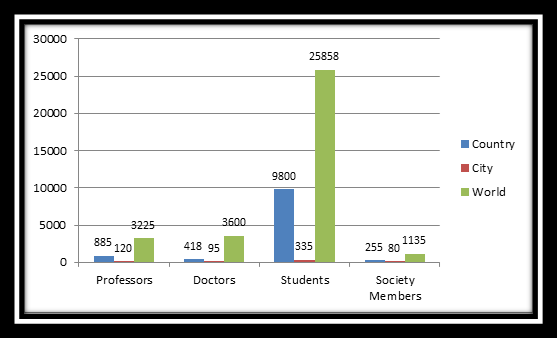
The important goal of heart failure therapy is to inhibit the progression of congestive heart failure through pharmacological, device-based therapies. Therefore, there have been efforts to develop device-based therapies aimed at improving cardiac reserve and optimizing pump function to meet metabolic requirements. The course of congestive heart failure is often worsened by other conditions, including new-onset arrhythmias, ischemia and infarction, valvulopathy, decompensation, end-organ damage, and therapeutic refractoriness, that have an impact on outcomes. The onset of such conditions is sometimes heralded by subtle pathophysiologic changes, and the timely identification of these changes may promote the use of preventive measures. Consequently, device-based methods could in the future have an important role in the timely identification of the subtle pathophysiologic changes associated with congestive heart failure.
Conference Highlights
- Cardiology
- Heart Diseases
- Heart Failure
- Cardiovascular Medicine
- Cardiac Surgery
- Hypertension
- Arrhythmias
- Cardiac Electrophysiology
- Pediatric Cardiology
- Nuclear Cardiology & Cardiac CT
- Molecular and Cellular Cardiology
- Cardiac Nursing
- Cardiac Regeneration
- Cardiovascular Engineering
- Cardiovascular Pharmacology
- Percutaneous Coronary Interventions
- Devices / CRT / ICD / Surgery
- Clinical Cases reports in Cardiology
To share your views and research, please click here to register for the Conference.
To Collaborate Scientific Professionals around the World
| Conference Date | December 12-13, 2024 | ||
| Sponsors & Exhibitors |
|
||
| Speaker Opportunity Closed | |||
| Poster Opportunity Closed | Click Here to View | ||
Useful Links
Special Issues
All accepted abstracts will be published in respective Our International Journals.
- Journal of Coronary Heart Diseases
- International Cardiology Journal
- Journal of Heart and Cardiovascular Research
Abstracts will be provided with Digital Object Identifier by





